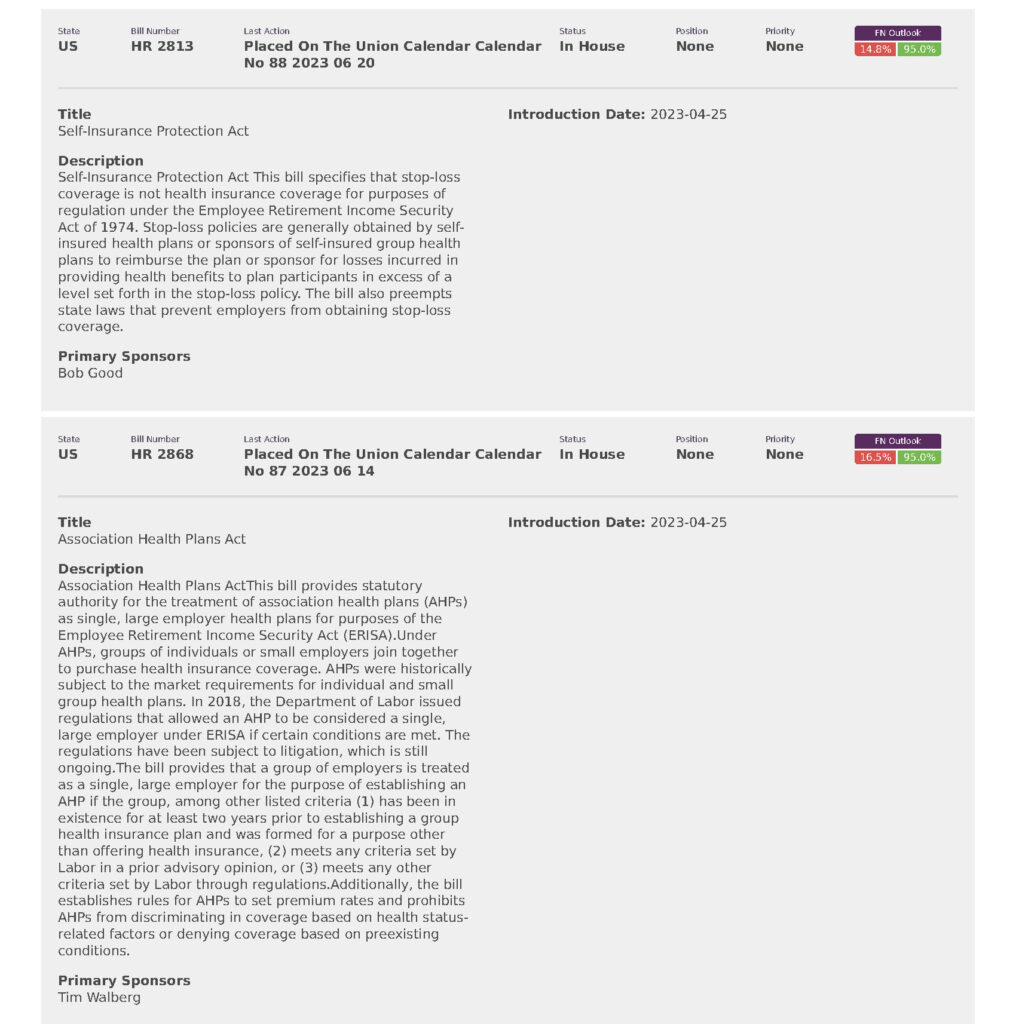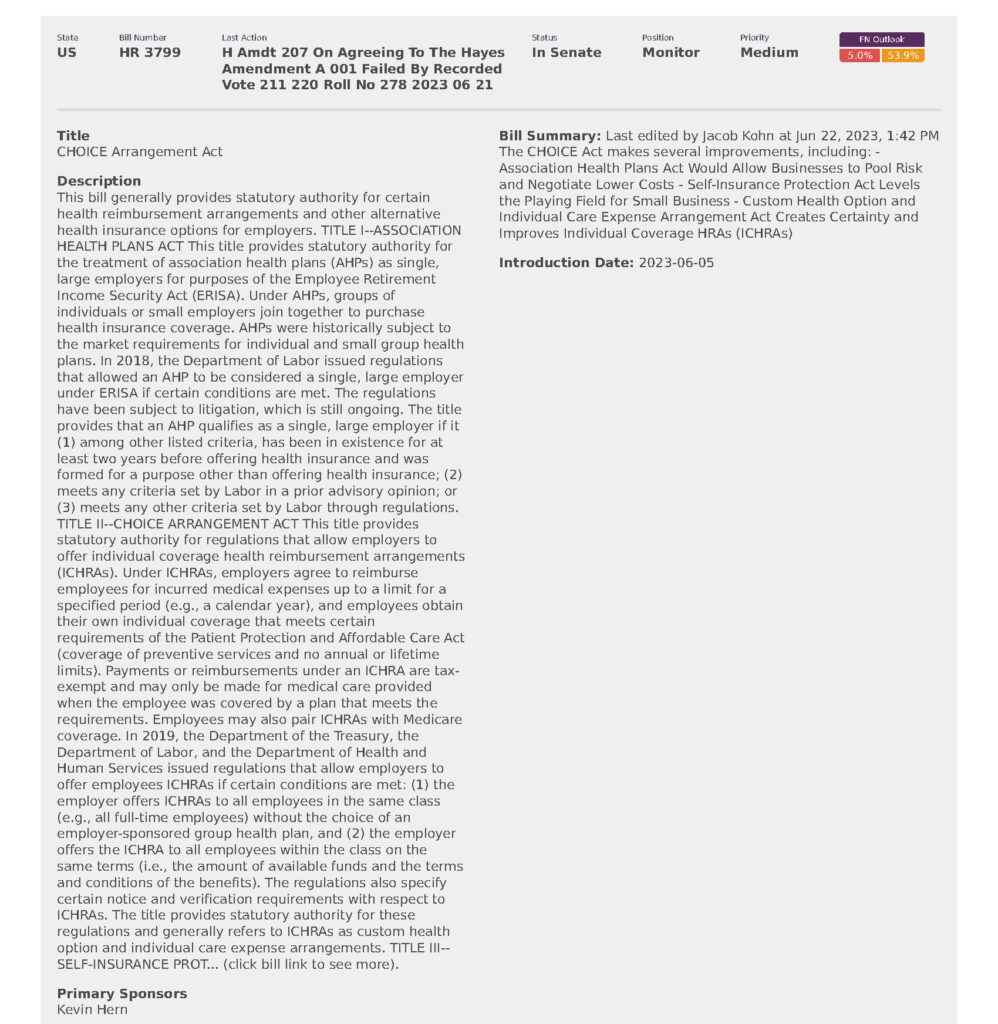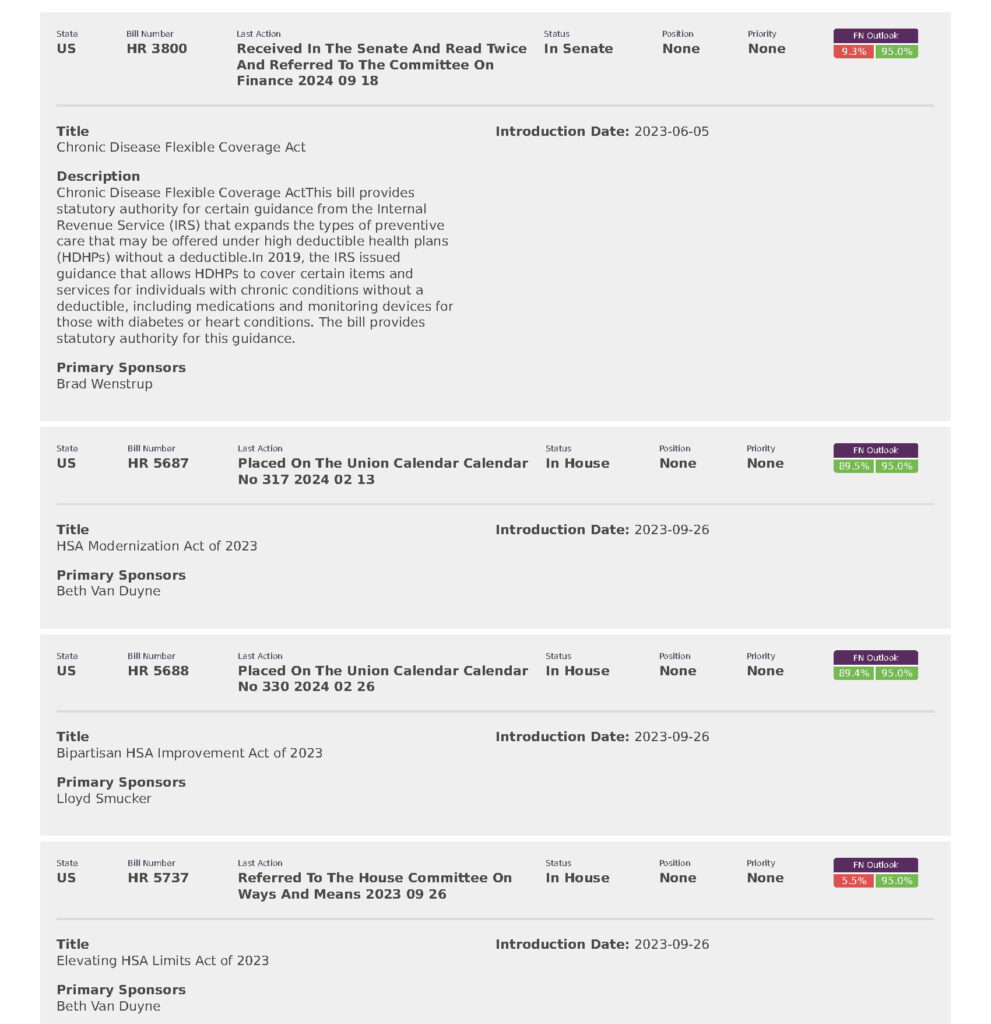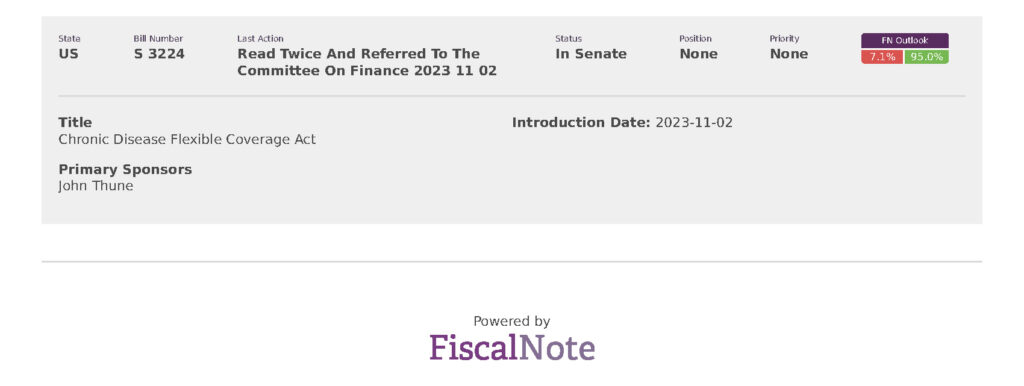
Work on the Hill
August recess wrapped up with Congress poised to begin new appropriations negotiations with a quick ramp-up to the election. The FY25 appropriations process remained a top priority. The looming September 30 deadline for government funding intensified the pressure on both chambers to find common ground and avoid a government shutdown. On September 25, the House of Representatives Speaker passed a clean Continuing Resolution (CR) through December 2025, which the Senate also passed later that evening. This result means a government shutdown will be averted, and government spending levels will remain unchanged through December 2025.
In addition to congressional focus on appropriations, lawmakers are also grappling with a range of other last-minute issues, including tax policy, healthcare reform, infrastructure investment, and climate change. The outlook on many of these agendas in this current Congress is unlikely, as the November elections cast a long shadow on current Capitol Hill negotiations. With the polls indicating a very tight election, politicians on both sides of the aisle are wary of marshaling major legislation through Congress before the election outcome is certain. Thus, the September work period will be a crucial time for lawmakers to engage with their constituents and build consensus on these complex issues ahead of the presidential elections.
During August recess Lobbyit remained tapped into any movement in NEA’s priorities, specifically around any coming healthcare plan reforms. Lobbyit was alerted of a coming hearing on ERISA plans and shared that announcement with NEA and will follow up with detailed notes of any relevant conversations.
Legislative Update
Highlighting this bill for you as it may apply to any NEA members looking to start or increase educational training in the healthcare sector.
Healthcare Workforce Innovation Act [S.4957]
Sponsor: Sen. Ron Wyden (D-OR)
Co-Sponsors: Sen. Marsha Blackburn (R-TN), Sen. Ben Luján (D-NM)
Background:
This legislation is aimed at addressing the shortages of healthcare professionals in rural and underserved communities. Introduced by Senators Wyden, Blackburn, and Luján, the bill is representative of a bipartisan effort to enhance the facilitation of healthcare through education and training programs. It is in response to a steadily growing need for a healthcare workforce which can support a diverse population.
Overview/Bill Summary:
The Healthcare Workforce Innovation Act amends Section 755(b) of the Public Health Service Act, establishing the Healthcare Workforce Innovation Program. This program is designed to support community-driven initiatives for education and training of healthcare professionals. Key components include:
Providing grants/contracts to eligible entities, including federally qualified health centers, state-level associations, certified rural health clinics, and accredited nonprofit vocational programs
Funding training programs and innovative professional healthcare partnerships
Focusing on rural and underserved areas
Encouraging diversity in healthcare by supporting individuals from underserved and disadvantaged backgrounds
Grant amounts up to $2.5 million for periods of at least 3 years
December Stopgap Funding Bill Readied for House Floor Action
To avoid a government shutdown, House Republicans have proposed a 12-week extension of federal budget, which is expected to be voted on this week. It is believed that both parties would support the plan, which would keep funding at existing levels through December 20. To pass the package, GOP leaders, including Speaker Mike Johnson, are addressing worries that a shutdown would have negative results in the next elections.
In addition to providing certain specific improvements for emergency preparation related to presidential transitions, the law offers $231 million for the Secret Service to improve safety for presidential candidates. However, since the VA would still have access to $142 billion for its current needs, it does not include the previously proposed $12 billion funding deficit for veterans’ health care.
Even while the bill has support from both parties, it does not include several of the Democratic Party’s proposed provisions, which could make it difficult to get enough votes. There are just a few days left before the October break, so if the House approves the plan, the Senate won’t have much time to take action to prevent a shutdown.
Thompson Says Farm Bill Differences ‘fading from dark red’
As the deadline for a new farm bill approaches, House Agriculture Chairman Glenn “GT” Thompson emphasized the commitment among congressional leaders to pass a bill during the lame-duck session. There are ongoing discussions with Senate Agriculture Chair Debbie Stabenow and Agriculture Secretary Tom Vilsack, noting staff from both sides are in talks.
Although the September 30th deadline approaches for the current farm bill (PL 118-22), funding for many programs will continue until December 31st. Unlike previous attempts for extensions, congressional leaders are not seeking an extension in the upcoming continuing resolution. House Agriculture ranking member David Scott expressed cautious optimism about reaching a bipartisan agreement, while highlighting the urgency to finalize the bill.
Proposal differences regarding the use of funds for climate-conscious practices and adjustments to the Supplemental Nutrition Assistance Program (SNAP) remain between the House and Senate. Despite these challenges, Thompson indicated a willingness to negotiate, stating that the hardline positions are beginning to soften. He stated his commitment to maintaining essential safety net provisions for farmers.
Emboldened Fed Lowers Interest rates by half-point
On Wednesday, the Federal Reserve lowered interest rates by 50 basis points, its first decrease in two and a half years, to reverse the spike in inflation that followed the pandemic. The range of the new federal funds rate is 4.75% to 5%. The Fed’s view that it is managing inflation, which had surged to levels not seen since the early 1980s, is reflected in this significant decrease.
Due to supply chain problems and widespread layoffs, the pandemic seriously damaged the economy. Following the economy’s 2021 recovery, inflation surged to such an extent that the Federal Reserve raised interest rates gradually, starting from near zero and peaking at 5.25 to 5.25% by July 2023. The unemployment rate has been low, ranging from 4.2% to 4.3%, despite concerns about a recession brought on by these increases.
The Consumer Price Index (CPI) fell below 3% in July and even lower to 2.5% in August, which alarmed several lawmakers who thought the Federal Reserve was taking too long to lower interest rates. Delays, according to critics like Senators Sheldon Whitehouse and Elizabeth Warren, could harm the economy. The Federal Reserve’s ability to strike a balance between low inflation and high employment is still a top priority as it navigates these difficulties. Additional rate reductions are anticipated but their exact timing and degree are still up in the air.
FTC Sues Three Largest Drug Middleman for Allegedly Inflating Insulin Prices
The Federal Trade Commission (FTC) filed a lawsuit on Friday alleging “anticompetitive” behavior that has driven up insulin prices against the three biggest pharmacy benefit managers (PBMs): UnitedHealth’s OptumRx, Cigna’s Express Scripts, and CVS Caremark Rx. In the US, these businesses oversee almost 80% of prescription drugs. Despite the availability of less expensive options, the FTC claims that they established a discount program that benefits manufacturers who charge higher prices for insulin, increasing patient expenses. PBMs and partners are allegedly able to make money from people who depend on insulin thanks to this process.
The lawsuit is part of a broader scrutiny by the Biden administration aimed at uncovering the questionable practices of PBMs in the pharmaceutical distribution system. The FTC highlighted concerns that powerful PBMs have contributed to increasing insulin costs over the past decade. In response, the targeted companies strongly criticized the FTC’s claims, arguing that the agency misunderstands the drug pricing environment and that they have made efforts to make insulin more affordable.
Although the FTC admits that PBMs have contributed to the increase in insulin pricing, it also identified medication producers such as Eli Lilly, Novo Nordisk, and Sanofi as important actors. The FDA said that as part of its ongoing inquiry into the increasing price of life-saving medications, it could pursue additional legal action against drug producers in the future.
Fall Legislative Preview
As Congress returns from recess, lawmakers are focused on passing a stopgap spending bill to avoid a government shutdown. Senate Majority Leader Chuck Schumer emphasizes the need for bipartisan cooperation on funding, while House conservatives want to avoid a large, post-election omnibus spending bill. Other pressing issues include extending the farm bill, advancing the fiscal 2025 defense authorization, and addressing political deepfakes, which Schumer is pushing to regulate.
Telehealth
The COVID-19 public health emergency saw telehealth use expand dramatically, including through policies that expanded Medicare coverage of such flexibilities. With some of these policies expiring December 31st, Congress, particularly the House, has several bills pending to extend telehealth coverage.
The House Ways and Means Committee approved a bill (HR 8261), as did the House Energy and Commerce Health Subcommittee (HR 7623) that would extend through 2026 the flexibilities and coverage of audio-only telehealth services while expanding the types of practitioners eligible to deliver such services.
In 2023, 25 percent of Medicare beneficiaries had at least one telehealth visit, according to CMS, so it is critical that Congress pass telehealth-extension legislation.
Health Bills
Lawmakers have made moves to increase oversight of pharmacy benefit managers and reduce Medicare payments to hospital outpatient departments for drug administration services to make them equal to what physicians’ offices are reimbursed.
Any of these bills, some of which have moved through committees of jurisdiction, could be attached to an end-of-the-year spending bill or other legislative package, especially if they save enough money to pay for other policies.
On PBMs: (including the Lower Costs, More Transparency Act)
Two bills (HR 8261, S 2973) that would “delink” a PBM’s compensation from the list price of a drug in Medicare Part D and require more transparency disclosures. The House Ways and Means Committee approved the former bill in May, while the Senate Finance Committee approved the latter legislation in December 2023.
A third bill (HR 5378), which passed the House last year, would require more transparency from PBMs, and a fourth (S 1339), advanced by the Senate Health, Education, Labor and Pensions Committee last year, would require PBMs to annually report certain information to plan sponsors; prohibit spread pricing; and require that all rebates, fees and discounts be passed through to plan sponsors.
The Lower Costs, More Transparency Act (HR 5378) would also reduce Medicare payments to hospital outpatient departments for drug administration services to the amount paid to physician offices, a concept called “site-neutral” payments and require off-campus hospital outpatient departments to bill under separate provider identifiers. The Senate HELP version of that measure (S 2840) would require separate provider identifiers in the commercial market but not require site-neutral payments for drug administration.
On drug pricing and patients:
The Senate has introduced a handful of bipartisan bills (S 79, S 142 and S 148) related to drug pricing and patents through the Senate Judiciary Committee that could also become part of a year-end legislative package.
Looking forward to the fall, it is likely that the PBM bills will be included in the year-end spending bills. Meanwhile, hospital payment bills have faced fierce opposition from the hospital industry but could be a tempting offset for policies that Congress wants to pass that cost money, such as telehealth expansion.
Bills by Issue
National Employers Association (8)




